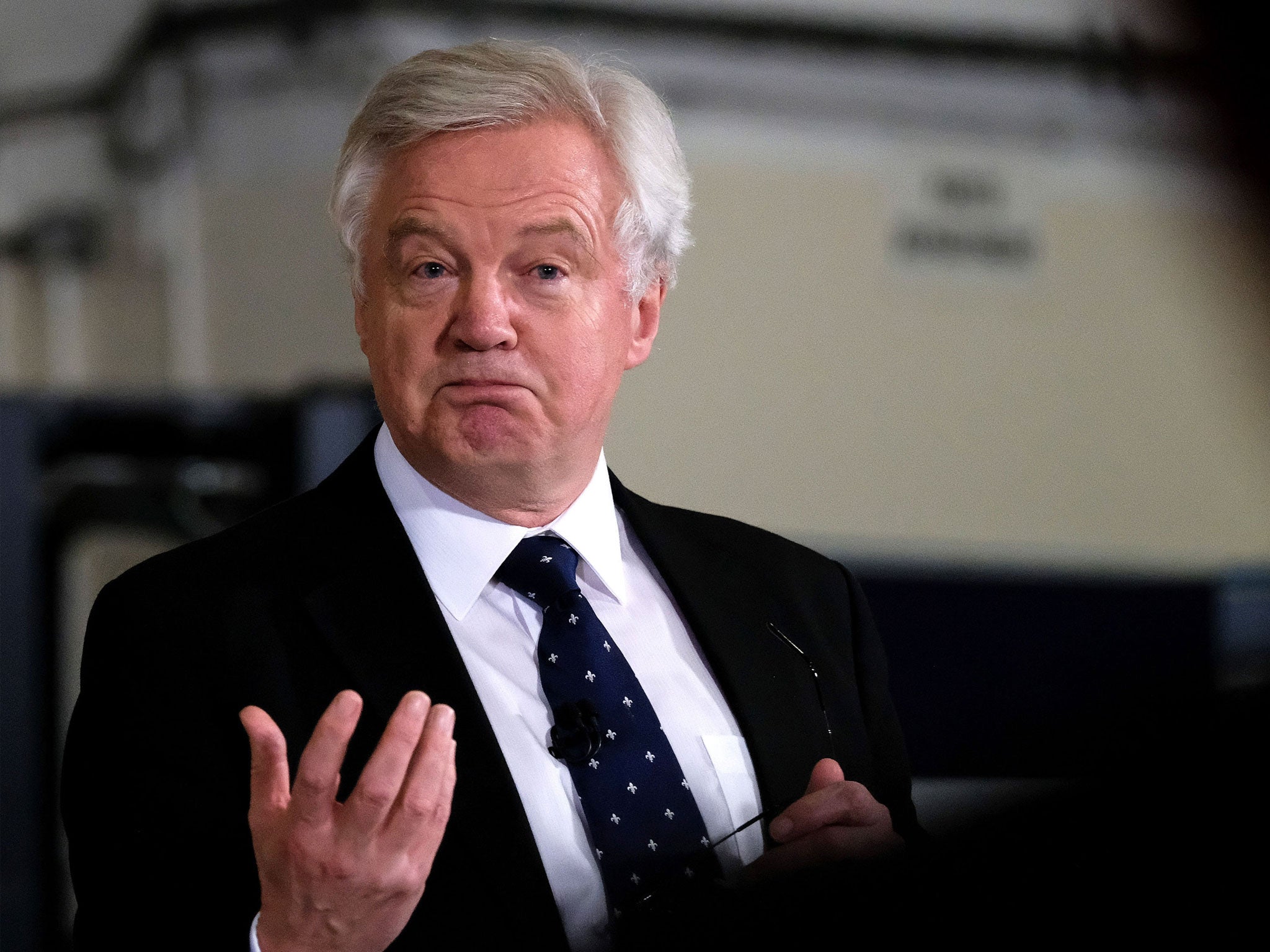Your support helps us to tell the story
From reproductive rights to climate change to Big Tech, The Independent is on the ground when the story is developing. Whether it's investigating the financials of Elon Musk's pro-Trump PAC or producing our latest documentary, 'The A Word', which shines a light on the American women fighting for reproductive rights, we know how important it is to parse out the facts from the messaging.
At such a critical moment in US history, we need reporters on the ground. Your donation allows us to keep sending journalists to speak to both sides of the story.
The Independent is trusted by Americans across the entire political spectrum. And unlike many other quality news outlets, we choose not to lock Americans out of our reporting and analysis with paywalls. We believe quality journalism should be available to everyone, paid for by those who can afford it.
Your support makes all the difference.The EU would deny Britain the Brexit transition period requested by Theresa May if ongoing disagreements in negotiations are not resolved, Michel Barnier has warned.
The European Commission’s chief negotiator told reporters in Brussels that a transition period was “not a given” and that “there will undoubtedly be a problem” if the UK sticks to its guns.
The UK is at odds with Brussels in a number of areas: it has demanded a power to object to new rules imposed on it during the transition period, restrictions on the rights of EU citizens who come to Britain during the transition, and the ability to opt in to certain European policies.
The EU says its plan for the transition agreed by the 27 member states, which does not include these aspects, is “logical” and “non-negotiable”.
Talks also appeared to be making little headway on Friday after Mr Barnier accused the UK of cancelling a planned meeting due to a “diary clash”. But British officials immediately denied cancelling the meeting and said it had merely been moved to the afternoon.
“To be quite frank, if these disagreements persist, the transition is not a given,” Mr Barnier said.
“As I said, time is very short and we haven’t a minute to lose if we want to succeed, and we do want to succeed in this orderly withdrawal, and we have to discuss the future relationship as soon as possible.
“I have some problems understanding the UK’s position: they themselves asked for this transition period, the heads of state and government said yes on the basis of very logical conditions – because you’re keeping the single market, customs union, the economic status quo for a limited period, it’s understandable that we should keep the regulatory and supervision structure, the way rules are applied, it’s the integrity of the single market that’s at stake.
“If this disagreement should [continue to] exist there will undoubtedly be a problem. I hope that we will be able to resolve this disagreement in the next round.”
Turning to the issue is Ireland, Mr Barnier reiterated a warning that coming out of the customs union and single market made a hard border “unavoidable”. He said the “specific solution” on Ireland promised by the UK, or full regulatory alignment in Ireland could prevent such controls.
Both sides say they want to agree the transition period before the European Council meeting in March, giving them just under two months to make a deal on the issue.
Were a transition period to not be agreed, the UK would effectively crash out of the bloc without a deal in March 2019 – unless the negotiation period were extended by consent of all 27 EU countries, or Article 50 were revoked.

It is currently planned that the meat of the “future relationship” between the EU – effectively a trade agreement – would be negotiated during the transition period, meaning its absence would cause huge disruption for UK industry.
The transition period, which the Prime Minister requested in her Florence speech, was previously considered to be the most straightforward part of the Brexit process due to its simple nature. The UK has however raised objections with the EU’s proposals after Tory right-wingers raised objections to the idea, arguing that it would make the UK a temporary “vassal state” of Europe.
Keir Starmer, Labour’s Shadow Brexit Secretary, same the comments “should be a wakeup call for the Prime Minister”.
"As Labour has said for months, it's vital the Government secures sensible transitional arrangements to prevent a cliff-edge for our economy. Yet with just a few weeks until the March deadline, it’s clear the Government is no closer to reaching an agreement.
“Businesses and trade unions have been crystal clear that failure to secure strong transitional arrangements will mean companies pulling investment and staff out of the UK.
"Theresa May must end the infighting within her Cabinet, drop her reckless redlines and accept Labour’s proposals for a transitional deal. That means seeking to remain in a customs union with the EU and within the single market during that period. It means we would abide by the common rules of both.”

Join our commenting forum
Join thought-provoking conversations, follow other Independent readers and see their replies
Comments